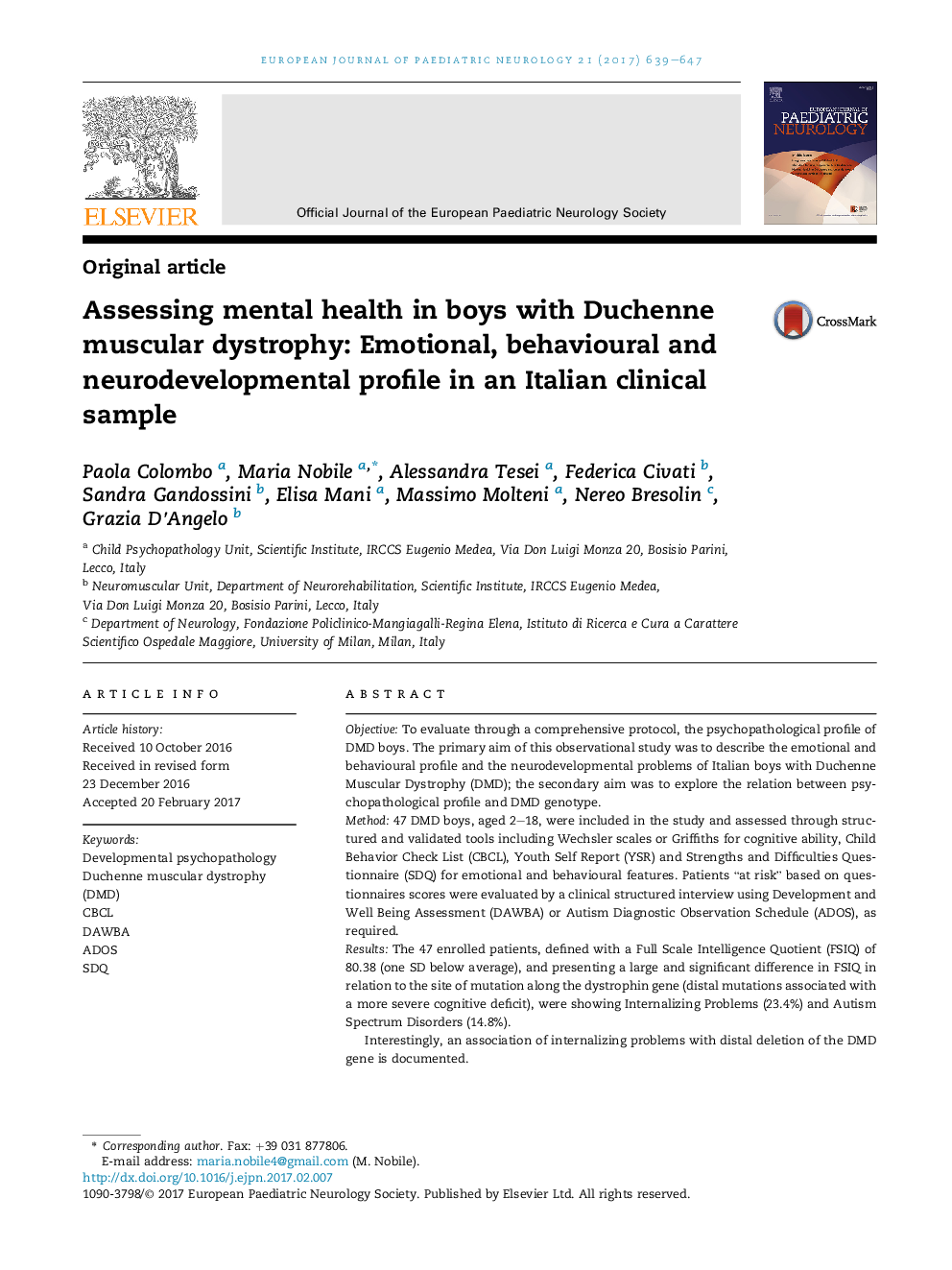| کد مقاله | کد نشریه | سال انتشار | مقاله انگلیسی | نسخه تمام متن |
|---|---|---|---|---|
| 5628802 | 1579999 | 2017 | 9 صفحه PDF | دانلود رایگان |
- Higher prevalence of Autism Spectrum Disorder (14.8%) in DMD boys.
- Higher prevalence of Intellectual Disability (36.2%) in DMD.
- Higher prevalence of CBCL Internalizing Problems (23.4%) in DMD.
- First study in DMD based on reliable psychopathological assessment.
- Assessment of impact of emotional/behaviour problems on everyday life.
ObjectiveTo evaluate through a comprehensive protocol, the psychopathological profile of DMD boys. The primary aim of this observational study was to describe the emotional and behavioural profile and the neurodevelopmental problems of Italian boys with Duchenne Muscular Dystrophy (DMD); the secondary aim was to explore the relation between psychopathological profile and DMD genotype.Method47 DMD boys, aged 2-18, were included in the study and assessed through structured and validated tools including Wechsler scales or Griffiths for cognitive ability, Child Behavior Check List (CBCL), Youth Self Report (YSR) and Strengths and Difficulties Questionnaire (SDQ) for emotional and behavioural features. Patients “at risk” based on questionnaires scores were evaluated by a clinical structured interview using Development and Well Being Assessment (DAWBA) or Autism Diagnostic Observation Schedule (ADOS), as required.ResultsThe 47 enrolled patients, defined with a Full Scale Intelligence Quotient (FSIQ) of 80.38 (one SD below average), and presenting a large and significant difference in FSIQ in relation to the site of mutation along the dystrophin gene (distal mutations associated with a more severe cognitive deficit), were showing Internalizing Problems (23.4%) and Autism Spectrum Disorders (14.8%).Interestingly, an association of internalizing problems with distal deletion of the DMD gene is documented.ConclusionEven though preliminary, these data show that the use of validated clinical instruments, that focus on the impact of emotional/behaviour problems on everyday life, allows to carefully identify clinically significant psychopathology.
Journal: European Journal of Paediatric Neurology - Volume 21, Issue 4, July 2017, Pages 639-647
